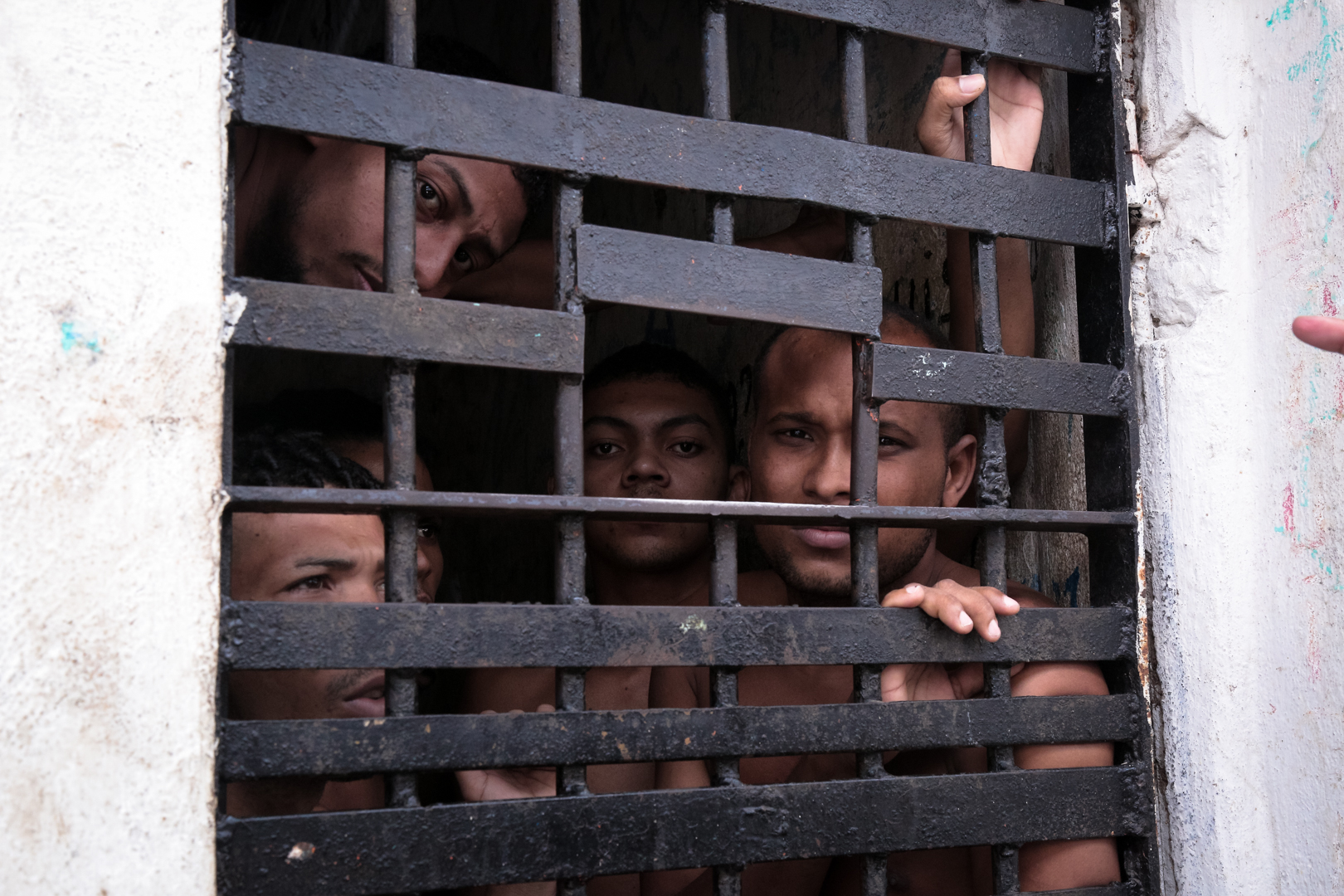NGOs seek compensation in court for intimate searches in São Paulo prison facilities
Pending in the São Paulo State Court since 2014, a public civil action for cases that occurred in a prison in Guarulhos is scheduled to be heard on Monday, February 13
 Presídio brasileiro é símbolo internacional de violência em prisões e da falência do sistema prisional no país (Fonte: Conectas/Divulgação)
Presídio brasileiro é símbolo internacional de violência em prisões e da falência do sistema prisional no país (Fonte: Conectas/Divulgação)
On Monday, February 13, the São Paulo State Court is scheduled to hear a public civil action that calls for the São Paulo state government to be convicted of moral damages for conducting demeaning intimate searches of the relatives of prisoners during visits to the Pre-Trial Detention Centers I and II in Guarulhos, between 2011 and 2013, and also for the searches to be recognized as being illegal.
The case was filed by Conectas Human Rights in 2014 and more recently other organizations have requested to participate as amici curiae. They are: ITTC (Land, Labor and Citizenship Institute) and Pastoral Carcerária (the Catholic Church’s prisoner outreach service). The São Paulo State Public Defender’s Office requested admission to act as a party in the case. The requests have not yet been processed.
An intimate search is a procedure to which the relatives of prisoners, including children, women and elderly people are subjected when entering prison facilities. In general, they need to strip completely naked and squat repeatedly.
According to civil society organizations, the search is humiliating and violates the bodies of the people who visit prisons, and, therefore, infringes on constitutional principles and international treaties to which Brazil is a signatory.
“The intimate search is demeaning and dehumanizes people. There are reports that male prison guards conduct the procedure on female visitors. It is a way to punish and weaken the families of prisoners. Brazilian law does not provide, under any circumstances, for sentences to be extended to third parties,” said the lawyer Carolina Diniz, coordinator of the program to Combat Institutional Violence at Conectas.
Given the serious violation of the victims’ rights, the organizations are requesting the payment of collective moral damages in the amount of R$1,000,000.00, to be paid into the Fund for the Defense of Diffuse Interests, which is responsible for handling the amounts to be invested in reparation and civic awareness programs in the state of São Paulo.
In addition to compensation, the organizations are requesting that the procedure be recognized as illegal and that any evidence gathered from these searches be considered illegal and excluded from criminal cases, given their violation of constitutional standards.
UN and OAS
On Thursday, February 9, Conectas and eight other organizations sent an urgent appeal to UN and IACHR (Inter-American Commission on Human Rights) rapporteurs asking them to urge Brazil to send information about the continuity of abusive searches in the country, in particular in the state of Sao Paulo. In the document, the organizations Conectas, IDDD (Defense of the Right to a Defense Institute), the Criminal Justice Network, the São Paulo State Public Defender’s Office, Pastoral Carcerária, ITTC (Land, Labor and Citizenship Institute), the National Mechanism to Combat and Prevent Torture, Amparar and OMCT (World Organization Against Torture) are also asking for the courts to recognize the procedure as being illegal.
In 2014, when the case reached the São Paulo State Court, Juan Mendez, the then UN special rapporteur on torture said that making someone undress, squat several times and open their anus and vagina for inspection constitutes cruel, inhuman and degrading treatment – i.e. it breaches the Convention against Torture of 1984, which was signed by Brazil in 1991.
An ongoing practice
According to Diniz, although the case deals with a specific prison, it is important to emphasize that these humiliating procedures continue to occur in various prisons in several Brazilian states.
In a technical report that analyzes cases in the state of São Paulo, Amparar (Association of Families and Friends of Prisoners) notes that abusive searches represent a structural violence that is present in the lives of people who visit prison facilities in the state of São Paulo and which continue to occur, regardless of Law 15552/14 that bans these searches and requires the installation of body scanners.
Although the use of scanners could be a solution to avoid abusive searches, several family members have complained that the guards do not know how to use the devices. This information is contained in the report ‘Abusive searches: an ongoing practice’, released in March 2022 by Conectas, IDDD, the Criminal Justice Network, Pastoral Carcerária, NESC, ITTC and the National Decarceration Agenda. This national survey contains accounts from the relatives of prisoners and shows the profile of the victims – almost all of them women and 68.1% of them people of color.


